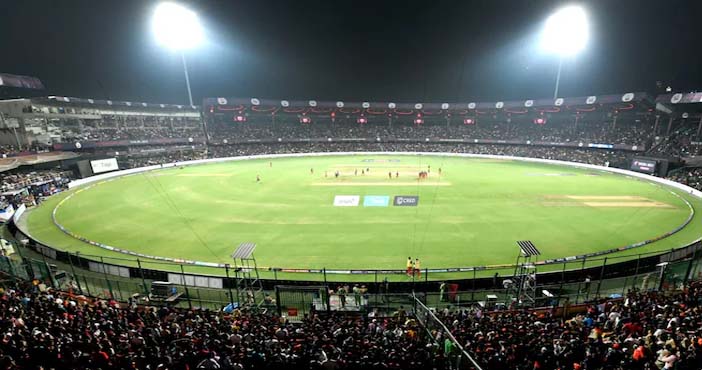
In light of Bengaluru’s water crisis, treated water will be supplied to the M Chinnaswamy stadium for IPL 2024 matches. This proactive measure aims to address the city’s pressing need for water conservation and sustainable resource management.
Amid the water scarcity crisis in Bengaluru, authorities have decided to provide treated water to the M Chinnaswamy stadium for the upcoming IPL 2024 cricket matches. The decision came after the Karnataka State Cricket Association (KSCA) requested assistance from the Bangalore Water Supply and Sewerage Board (BWSSB).
The stadium requires approximately 75,000 liters of treated water daily during matches. To meet this demand, the BWSSB agreed to supply water sourced from the Cubbon Park wastewater treatment plant.
The BWSSB chairman, Ram Prasad Manohar, affirmed the commitment to supply treated water to the stadium, emphasizing the importance of conserving groundwater and Cauvery river water by promoting the use of treated water.
For the unversed, Bengaluru is facing a severe water shortage due to various factors such as reduced rainfall, declining groundwater levels, and limited recharge options. Chief Minister Siddaramaiah highlighted that the city lacks 500 million liters of water per day against the required 2,600 million liters.
Furthermore, the situation is exacerbated by the drying up of borewells, with nearly half of them rendered non-functional. In response, the Karnataka Water Supply and Sewerage Board has imposed restrictions on using drinking water for non-essential activities like car washing, gardening, construction, and maintenance in Bengaluru.
By utilizing treated water for the cricket stadium, authorities aim to alleviate the strain on freshwater sources and promote sustainable water management practices. This initiative underscores the importance of conservation efforts and responsible water usage amidst the growing challenges of water scarcity in urban areas.
Efforts to address the water crisis require collaborative action from government agencies, civic bodies, and the public to ensure the equitable distribution and efficient utilization of water resources. By implementing measures to reduce water wastage and promote water recycling, cities like Bengaluru can mitigate the impact of water scarcity and ensure a sustainable future for its residents.













